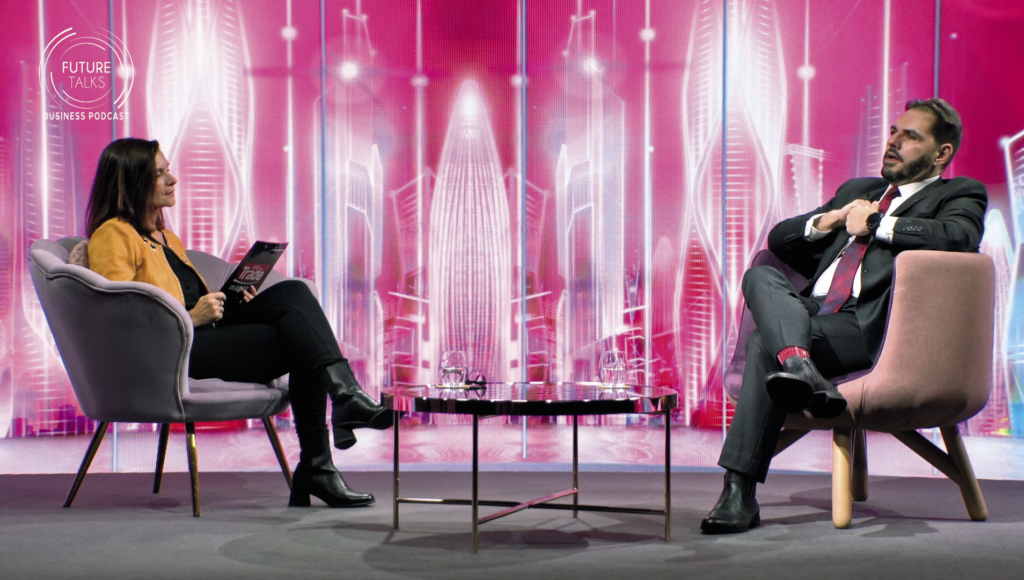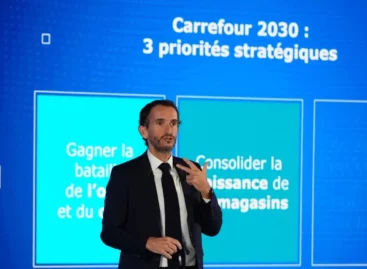Dr György Tilesch: We have entered the AI era2
… the biggest challenge of which is basically to find the balance between the individual and the machine – told Dr György Tilesch, artificial intelligence expert, founding president of the PHI Institute of Augmented Intelligence and AI ambassador of the Neumann Society, who was Szilvia Krizsó’s guest in the latest episode of the Future Talks podcast. This article features excerpts from their conversation, but you can watch the full interview at futuretalks.hu

This article is available for reading in Trade magazin 2024/4
– Wherever you are, you are working with AI. How did this happen?

dr. György Tilesch,
AI expert,
founding president of the PHI Institute of Augmented Intelligence and AI ambassador of the Neumann Society
– I have spent my whole professional life in the tech sector – mostly on the government side, but also working for big tech companies and start-ups. In 2010 I moved to the Silicon Valley in California, where around 2015 I heard the AI train was coming.
– What can I do if I don’t get AI at all? Where can I learn it and what do I need to learn in the first place?
– The short answer is that you need to understand what you can get out of these systems, what their risks and limitations are, and you have to learn their language. Perhaps even more importantly, we also need to be able to recognise the benefits they can bring to our own lives, to our own work, so we need to have a kind of imaginative capacity. The whole truth is that AI is effectively “intelligence on tap” – we need to think of it not as a human being, not just as a technological tool, but as a helper capable of improving our human performance.
– How is AI transforming medicine? There is a lot of uncertainty about what the future will bring.
– Medicine is a good example for two reasons. On the one hand, the biggest problem with the spread of AI at the moment is the lack of trust in society. Both technology companies and legislators are working to create the prerequisites that will build social trust. On the other hand, the lack of trust stems from the fact that in all its complexity AI is quite incomprehensible to many people, especially if we only discuss it in terms of technology, when we don’t even understand the world of Facebook. One important short-term tool for building social trust could be showing the benefits of AI in patient management, in managing the customer experience, or in significantly reducing the administrative burden on the doctor, and by this allowing more time for patients.

„If there is no regulation, AI will spread more slowly than business interests would dictate”
– According a Deloitte report on Hungary from 2023, a quarter of firms have some kind of resource dedicated to AI, but many companies have implemented AI without any strategy or legal compliance in place.
– There is nearly 100% agreement among executives that AI is something vital that they need to address, and 15% feel they are mature enough to deal with it. AI-readiness means that every company, at the level it is at, has room to manoeuvre. However, they need to build up things in a very conscious way, seeing where they want to get and how much time they need for that.
– How many years do you see ahead, what will the future bring?
– I reckon we have reached that critical mass of competing AI solutions, social and economic insights; this is no longer a “nice-to-have” story. We have entered the AI era, where finding the balance between the individual and the machine will be our biggest challenge. //
Related news
Carrefour Unveils 2030 Strategy, To Focus On France, Spain And Brazil
🎧 Hallgasd a cikket: Lejátszás Szünet Folytatás Leállítás Nyelv: Auto…
Read more >Related news
Nestlé to sell remaining ice-cream assets but commits to Froneri venture
🎧 Hallgasd a cikket: Lejátszás Szünet Folytatás Leállítás Nyelv: Auto…
Read more >









